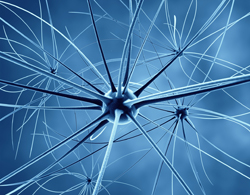Gene therapy for CNS disorders
Great progress has been made over the last decade in understanding mechanisms and principles of both normal brain function and central nervous system (CNS) disorders. Although this information makes new treatments for nervous system diseases more realistic, current pharmacological treatment strategies for neurodegenerative diseases offer only symptomatic relief and cannot influence the course of the disease. Although still an experimental approach, gene therapy presents a promising strategy for permanently correcting a genetic phenotype. Several proteins and regulatory RNAs have been identified to regulate normal brain function and affect disease progression. Targeting these molecules directly through gene therapy may be more time- and cost-effective compared to medications developed through classical pharmacology. Seeking to treat major neurodegenerative disorders, the EU-funded 'Advanced gene therapy tools for treatment of CNS-specific disorders' (Neugene) initiative worked to overcome existing limitations of current gene therapy vectors for safe and efficient approaches. The consortium used Parkinson's disease as a model with a goal to target viral vectors to specific cell types of the brain and achieve regulated, efficient and safe expression of therapeutic molecules in either neurons or glia. Vectors based on adeno-associated virus (AAV) and lentivirus (LV) were developed that specifically delivered therapeutic genes to astrocytes and to the main target cell population affected by Parkinson's disease. Through specific promoters and regulatory protein-based approaches, partners achieved targeted transgene expression. With respect to safety of the developed vectors, the consortium showed that existing immunity towards AAV serotype 2 could compromise the efficiency of transfer and transgene expression. The use of alternative vectors based on equine infectious anaemia virus (EIAV), to which humans are not naturally immunocompetent, argued for a superior safety profile. Neugene vectors were functionally validated in a mouse model for Parkinson's disease, demonstrating restoration of motor performance. Also, neurotrophin-expressing vectors were patented and put forward for clinical development. Overall, the Neugene research solved significant issues regarding the gene therapy of CNS disorders. The newly developed vectors boasted efficient yet cell-restricted and regulated transgene expression, setting the basis for gene therapy for CNS disorders.







